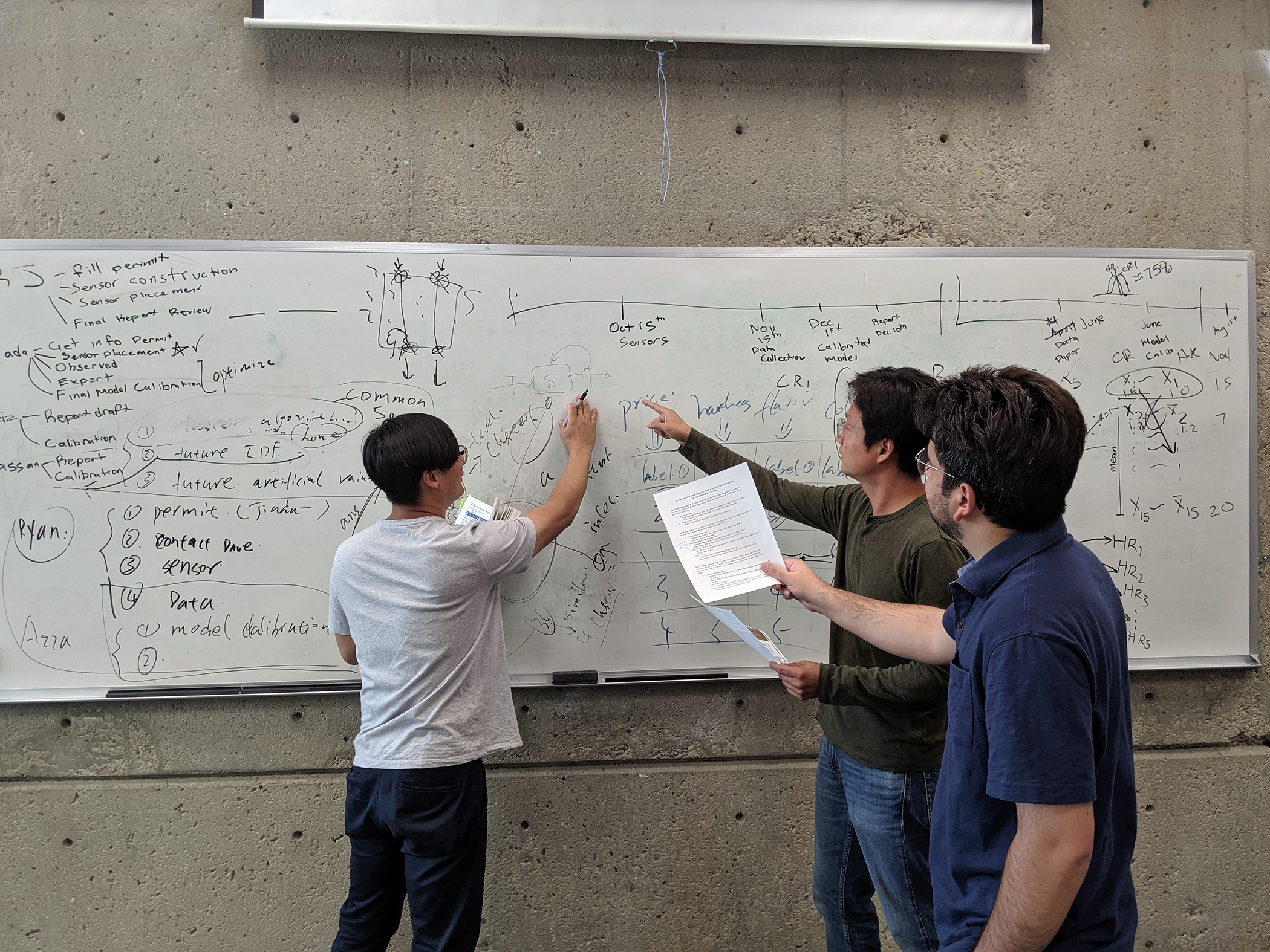
U Researchers Use Systems Dynamics Modeling to Help Korea’s Rural Research Institute Plan for Resiliency
For agricultural water managers, climate change means increased demand, supply hurdles, risk of extreme weather damage and greater potential for contamination. All are issues that weigh heavy on the minds of those in charge of ensuring delivery of the world's most precious resource and Dr. Eun hyuk Choi is no exception.

Choi serves as Research Planning Deputy Director for the Rural Research Institute of Korea Rural Community Corporation (KR). His agency has been responsible for managing the majority of South Korea's agricultural water infrastructure, including irrigation canals, reservoirs, and dams since 1908. KR uses historical models to predict and manage supply and demand trends, but as weather patterns change in Korea "we want to plan for resilience and integrate climate change impacts into our modeling," notes Choi.
Those ambitions prompted Choi to reach out to Dr. Steve Burian, a University of Utah Civil Engineering professor and director of the U Water Center. Burian's research group has contributed new approaches for designing urban water infrastructure, innovative urban databases and water modeling techniques, sustainable solutions for distributed water-energy-food systems in cities, and practical adaptation strategies for water managers facing aging infrastructure and climate change. After a mutual friend introduced them, Choi knew the group's expertise would lend a new perspective and help him to bolster KR's capabilities.
"We have tools to manage water infrastructure but they're not currently able to account for the full complexity of what we'll face in the future," said Choi. He is now in the middle of a year-long residency at the U, where he is collaborating with Burian and other researchers interested in leveraging advanced modeling techniques to support resilience in communities around the globe.

Sangmin Shin, a post-doctoral researcher, and Ph.D. student Danyal Aziz—both in Burian’s lab--are working closely with Choi, expanding the work they've developed for urban areas into the agricultural realm. With a changing climate "there are so many feedbacks that impact these systems, often with unexpected results," Shin said. The team is investigating a host of hypothetical scenarios to create a robust system dynamics model that will help Choi and KR to account for future water challenges connected to uncertain future growth and climate patterns.
Burian's team has developed similar Energy-Food-Water nexus models of the Indus Basin, and has collaborated with other U researchers to help Salt Lake City Department of Public Utilities plan water supply under climate change conditions.
“At the U Water Center, we believe that to address water challenges effectively we must engage in a new kind of collaboration rooted in sustainable Communities of Practice--academic institutions, industries, NGOs, governments, and local communities working together,” said Burian. “These partnerships are invaluable. They offer our students a chance to apply their skills in a ‘real world’ sense and make a very real impact.”
